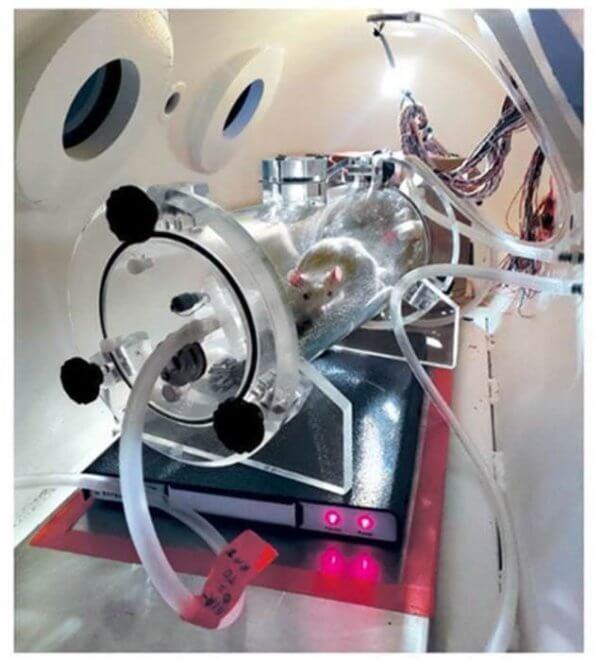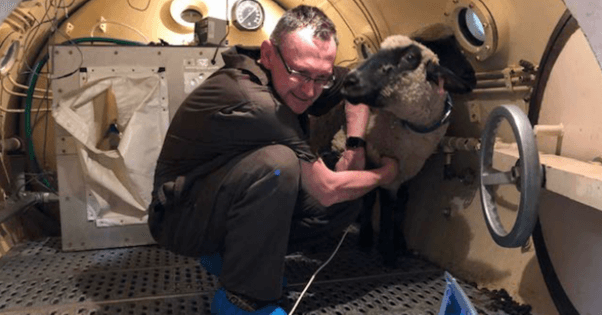Attention, U.S. Navy: Stop Conducting Cruel Decompression Tests on Animals
Are you aware of the disturbing history of U.S. Navy–funded, fatal decompression tests on animals? PETA has received damning new documentation of animal suffering that has taken place during these vile experiments funded by the military branch. In letters sent on April 9, PETA and more than 100 U.S. Navy veterans urged Secretary of Defense Lloyd J. Austin III and Secretary of the Navy Carlos Del Toro to end the Navy’s cruel and irrelevant decompression sickness and oxygen toxicity experiments on pigs and other species.

Why Navy-Funded Decompression Tests Are Deadly
Documents obtained by PETA reveal that among myriad atrocities at the Naval Medical Research Command, experimenters sliced open baby pigs, implanted devices in them, and locked them in high-pressure chambers for up to eight days before killing them.
“Animals suffer and die in these bogus Navy-funded tests, and veterans demand that the Pentagon’s top brass do better for service members. PETA is calling on secretaries Austin and Del Toro to listen to the veterans who want to see these archaic experiments on animals replaced with superior, human-relevant research.”
—PETA Vice President Shalin Gala

Among other fatal atrocities, experimenters administered a drug to a pig, inducing a severe escalation in body temperature and muscle contractions before killing the animal. Potentially faulty sedatives may have prolonged their victim’s suffering. Another pig thrashed and suffered for up to four hours, apparently due to a negative reaction to a drug, and was ultimately killed.
In addition, a rat suffocated to death after an equipment malfunction, and the experimenter failed to report the incident for 23 days.
Other records obtained by PETA show that at the University of California–San Diego, Navy-funded experimenters locked rats in pressure chambers, forced them to inhale radioactive gas, and electroshocked them if they failed to run on treadmills. In a set of records obtained from the University of South Florida, the lead experimenter appears to claim incorrectly that he didn’t withhold pain relief from at least 70 mice and 153 rats used in his oxygen toxicity experiments, despite documentation that he had conducted “Category E” experiments in which animals were denied any pain relief.
Since 2020, the Navy has wasted more than $4.9 million in taxpayer funding to bankroll decompression sickness and oxygen toxicity tests on animals at four major universities.
There is precedence for ending these tests. The Navy has already pulled the plug on its funding of decompression tests conducted on sheep at the University of Wisconsin–Madison following an appeal from PETA to Del Toro that was cosigned by retired Rear Adm. Dr. Marion Balsam.

Take Action: Help Sink This Cruelty
Humans should never experiment on other animals, and the Navy needs to hear that from you. Please contact the secretary of the Navy and tell him to ban all decompression tests on animals:

